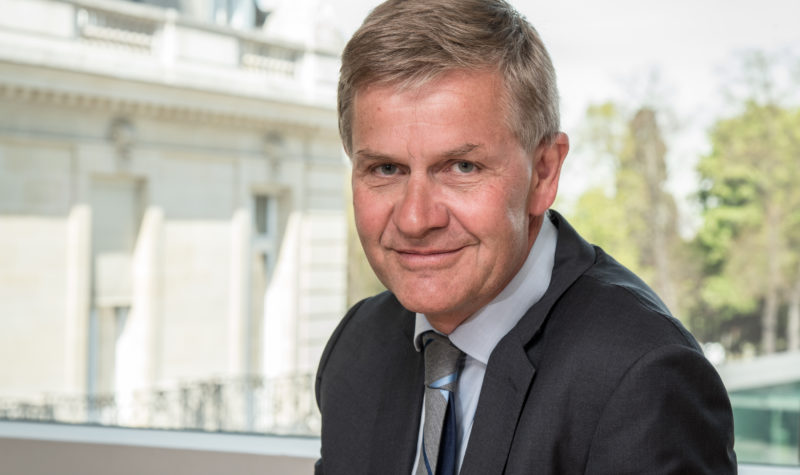History was made on Thursday, May 18, 2017 when the Minamata Convention on Mercury effectively came into force, having garnered the required 50 ratifications.

With the number of ratifications standing at 44 (courtesy of Norway, the 44th nation to ratify the Convention) as at Wednesday, Thursday however ushered in a “surprise” as the EU and seven of its member States – Bulgaria, Denmark, Hungary, Malta, the Netherlands, Romania and Sweden – deposited their instruments of ratification at the UN Headquarters in New York, bringing to 51 the current number of future Parties.
As a result, on August 16 2017, the Convention, which aims at protecting human health and the environment from anthropogenic emissions and releases of mercury and mercury compounds, will become legally binding for all its Parties. The updated list of Parties may be found here.
Similarly, the 1st Conference of the Parties to the Minamata Convention (COP1) has now been confirmed and it will gather governments, intergovernmental and non-governmental organisations from around the world in Geneva from September 24 to 29, 2017.
According to the Convention Secretariat, the conference will play a key role in the future of the Convention as, according to the Secretariat, it will consider and adopt decisions covering technical, administrative as well as operational and financial matters. The President of Switzerland will host a high-level segment on “Making Mercury History” on September 28 and 29, adds the Secretariat.
The Minamata Convention is said to be the first new global Convention on environment and health adopted for close to a decade. It addresses the entire life cycle of mercury, considered by the World Health Organisation (WHO) as one of the top 10 chemicals of major health concern, which threatens the environment and health of millions.
According to Erik Solheim, Head of UN Environment (UNEP), there are alternatives to almost all of mercury’s current applications, such as newer, safer industrial processes, adding that all countries, big and small, can play a role – “as well as all of us, just by changing what we buy and use”.
In a statement, Naoko Ishii, CEO and Chairperson, Global Environment Facility (GEF), said: “Today is a pivotal moment in the fight against harmful chemicals and their negative impact on health and the environment. On behalf of the Global Environment Facility, I am delighted to join others in the international community and celebrate the 50th Ratification of the Minamata Convention on Mercury. The Convention, which has been signed by 128 countries, will now come into force in 90 days.
“From the tragedy in Minamata in the 1950’s, to the decision of the UNEP Governing Council in 2009 to develop a global legally binding instrument on mercury, it has been a long journey to get us to this point.
“I want to thank UN Environment, all the governments, non-governmental organisations and others for their hard work and dedication to make this happen. I also want to take this opportunity to remember and honor the victims of mercury pollution in Minamata, Japan, that inspired this global action.
“Like other heavy metals, mercury persists in the environment forever. It can be transported over distances far removed from its original emission source, contaminating the food we eat, the water we drink and the air that we breathe.
“The Minamata Convention focuses on the entire life cycle of mercury, including controls and reductions across a range of products, processes and industries where mercury is used, released or emitted.
“As part of the Financial Mechanism of the Convention, the GEF has been charged with raising and disbursing grants for projects and programs to reduce and eliminate mercury pollution. GEF grants support a wide range of activities including inventories, implementation plans, and investments in technology for reduction and elimination of mercury.
“Over the last four years, the GEF has provided over $130 million to support early action and ratification of the Convention. More than 90 countries have already received funding.
“We are also supporting countries to take even bolder steps in seeking a sustainable way to phase out the use of mercury in the largest mercury consuming sector, artisanal and small scale gold mining. The Global Opportunities for Long-term Development (GOLD) GEF funded program supports miners, governments and the private sector to work together to bring transformational change in that sector.
“Today is a day for celebration, but there is still a huge task ahead of us. Mercury use and emissions are tied to many of our key economic activities including the production of power in many countries, manufacture of plastics and industrial processes. Addressing these challenges will require us all to work together to find viable solutions.
“On behalf of the GEF, I want to encourage all countries to ratify the Convention as it will require all countries to come to the table to make this a truly global effort.
“We look forward to the first Conference of the Parties to the Convention in September this year and continuing to work with and support governments as we move into the implementation phase of this critical Convention.”
